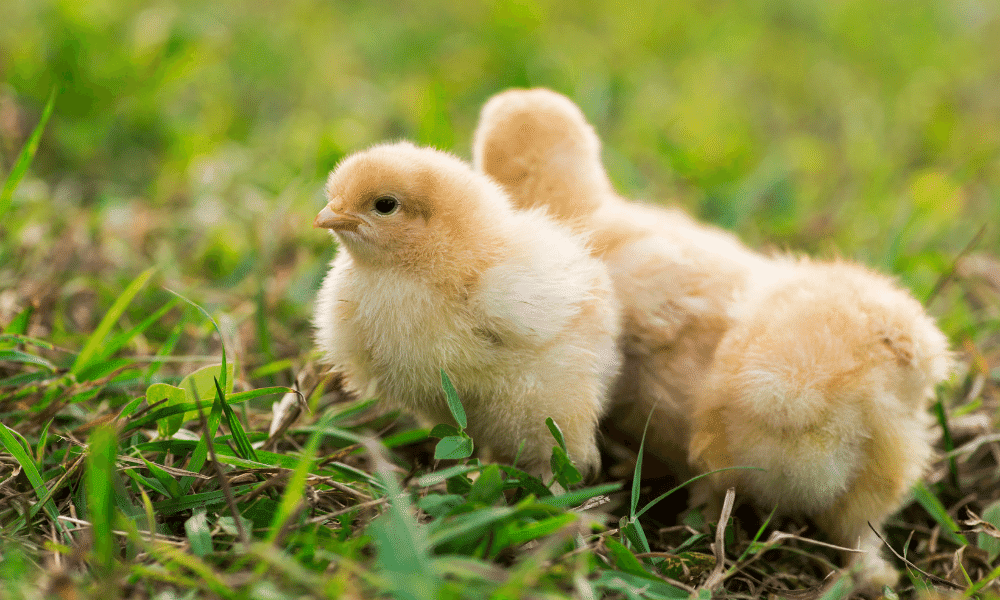Winterizing Your Farm: A Comprehensive Guide to Prepare for the Cold Season
As the winter season approaches, it's important for farmers to start preparing their farms and homesteads for the cold weather and potential winter storms this week. Not only does this ensure the safety of your farm and livestock, but it also helps to maintain productivity during the winter months. In this blog, we'll discuss the necessary steps to prepare your farm or homestead for the winter and ensure a successful season when farming in the winter months.
Farm Safety and Winter Storms
Before we dive into winter farm preparation, it's important to address the potential dangers of a winter storm on farms. Winter storms can bring heavy snow, ice, and strong winds, which can cause power outages, damage to farm structures, and harm to livestock. It's crucial to have a plan in place to ensure farm safety and animal protection during these extreme weather conditions.
Create an Emergency Plan
When you receive a winter storm warning, the first preparation step is creating an emergency plan. This plan should include procedures for protecting your farm and livestock and a plan for evacuation if necessary. Look into a potential emergency family shelter nearby as a backup. Make sure all members of your farm are aware of the plan and know their roles in case of an emergency.
Prepare for Power Outages
Winter storms can often cause power outages, which can be detrimental when homesteading. Make sure to have a backup plan in place for providing heat and water to your animals in case of a power outage. It's a good idea to have a backup generator, emergency light battery, and extra fuel on hand in case of a power outage. Make sure to check these regularly and replace any batteries that are low.
Stock Up on Supplies
In the event of a winter storm, it's important to have enough farm supplies to last for several days. This includes food and water for humans and animals, bedding, and any necessary medications. Ensure your pantry is well-stocked with:
Non-Perishable Foods: Have a supply of canned goods, grains, and other staples.
Emergency Cooking Supplies: Include a backup cooking source, such as a portable stove.
Bottled Water: Have enough water to last in case of water supply disruptions.
Salt and De-Icing Agents: Keep pathways clear of ice for safety.
Flashlights and Batteries: Prepare for power outages with reliable lighting.
Heating Sources: Consider alternative heating sources, such as space heaters or heated blankets.
Power Backups: Have backup generators on hand to keep essential systems running.
Prepare Your Farm Equipment for the Winter
Before the winter season begins, inspecting and maintaining all winter farm equipment is important. This includes tractors, plows, and other machinery that will be used during the winter months. Ensure all equipment is in good working condition and any necessary repairs are done before the first snowfall.
Perform Maintenance Checks: Before the winter season begins, it's important to perform maintenance checks on all of your farm equipment. This includes checking fluid levels, changing oil, and inspecting for any damage or wear and tear. It's also a good idea to have a professional mechanic inspect your equipment to ensure everything is in working order.
Protect Your Equipment from the Elements: During the winter, it's important to protect your equipment from the harsh weather conditions. This can include storing equipment in a covered area or using tarps to cover them. Keeping equipment off the ground is also important to prevent rust and damage. Apply lubricants to moving parts to prevent freezing!
Use Winter-Grade Fuel: If you use diesel or gasoline-powered equipment on your farm, it's important to use winter-grade fuel during the colder months. This fuel type is designed to withstand colder temperatures and prevent your equipment from freezing up.
Winterize Your Farm Structures
One of the first things local farms should do to prepare for the winter is to winterize farm structures. This includes insulating barns and sheds, sealing any cracks or gaps, and ensuring that all doors and windows are properly sealed. This will help to keep your animals warm and protect them from the harsh winter weather. Water hoses are prone to freezing, leading to disruptions in water supply. To prevent this, insulate your hoses using:
Pipe Insulation: Wrap pipes with insulation materials to retain heat.
Heated Hoses: Consider investing in hoses with built-in heating elements for added protection.
Regularly inspect hoses for wear and tear, and promptly replace any damaged sections.
Marketplace
You might also be interested in...

Shop for chickens, livestock or other farm goods

About Farm Expo Events

Sell Your Chicks and Eggs
Preparing Your Livestock for a Winter Storm Warning
One of the most important aspects of preparing your farm for the winter is ensuring the safety and well-being of your livestock. Here are some steps you can take to prepare your livestock for the cold weather:
Prepare Winter Livestock Housing:
Livestock housing should also be prepared for the winter season. Ensure all animal shelters are clean and well-ventilated, and provide extra bedding for warmth. Chicken breeders who have buff orpington chicks or other types of chickens should consider building a DIY winter chicken coop with insulation and a heat source to keep them warm during the colder months. Ensure your chicken feeder remains accessible and warm from the cold climates as well.
It's also important to inspect all of your livestock shelters and fences for any damage. Repair any holes or weak spots in fences to prevent your livestock from escaping or being exposed to harsh weather conditions. Ensure all shelters are sturdy and have proper insulation to keep your animals warm.
Stock Up on Feed and Water
During the winter, having enough feed and water for your livestock is important. Stock up on hay, grain, chick feed, and other supplies to last through the winter months. It's also important to have a plan for keeping your water sources from freezing. This can include using heated waterers or breaking up ice regularly.
Provide Adequate Bedding
Livestock need a warm and dry place to rest during the winter. Make sure to provide adequate bedding in their shelters to keep them warm and comfortable. This can include straw, wood shavings, or other materials that provide insulation.
Monitor Livestock Health
When homesteading during the winter, it's important to closely monitor your livestock's health. Winter farming hazards such as severe cold weather can make animals more susceptible to illness, so make sure to check for any signs of sickness and provide proper care if needed.
Keep Livestock Hydrated
It's crucial to make sure your animals have access to clean, unfrozen water during the winter. Farming winter conditions may require breaking up ice in water troughs or providing heated water buckets. Dehydration can be a serious issue for livestock during the winter, so make sure to check water sources regularly.
De-icing troughs is essential to provide livestock with a continuous supply of water. Consider using:
Floating Heaters: These devices float on the water's surface and prevent freezing by generating heat.
Submersible De-Icers: Placed directly into the water, these devices prevent ice formation.
To maximize effectiveness, position de-icers in the center of the trough, ensuring even distribution of heat. Regularly check and clean the devices to prevent malfunctions.
Protect Livestock from the Cold
Just like humans, animals can suffer from hypothermia and frostbite in extreme cold weather. Make sure to provide shelter and extra bedding for your animals as well as hatching eggs to keep them warm. You can also use heat lamps or heated mats in animal shelters to provide additional warmth.
Some livestock, such as horses and cattle, may benefit from wearing winter coats during the colder months. These coats can help keep them warm and protect them from harsh weather conditions. Make sure to choose coats that fit properly and are made from durable materials.
Also think about using pallets to elevate off the floor, providing a dry and comfortable space for chickens or livestock.
Preparing Your Farm for Winter Crops
Winter doesn't mean the end of farming. In fact, there are many crops that can thrive in the colder months. Here are some steps you can take to prepare your farm for winter crops:
Choose the Right Crops
When selecting crops for the winter, it's important to choose cold-tolerant varieties that can withstand frost and snow. Some popular winter crops include kale, spinach, and winter squash.
Prepare the Soil
Before planting your winter crops, it's important to prepare the soil. This can include adding compost or other organic matter to provide nutrients and improve drainage. It's also important to test the pH levels of your soil and make any necessary adjustments.
Protect Your Crops from Frost
You can use row covers or cloches to protect your crops from frost to create a barrier between the plants and the cold weather. You can also use mulch to help insulate the soil and keep it from freezing.
Our Roobeez resource library is full of homesteading resources - Learn more about gardening in the winter here!
Preparing your farm for the winter is crucial for your farm's and livestock's safety and maintaining productivity during the colder months, especially during a winter storm warning. By following these steps and tips, you can ensure that your farm is ready for the winter season and any potential winter storms. Stay safe and warm this winter!
If you are passionate about farming and homesteading, you're in the right spot!
Roobeez is the pioneering online marketplace and resource center tailored exclusively for those dedicated to farming and homesteading. Find local homesteading supplies, gather essential farming insights, and discover a wealth of resources. Joining Roobez is completely FREE and comes with numerous perks, such as boundless access to the online marketplace, informative guides on farm management, a supportive community of fellow homesteading enthusiasts, and more.
The fun doesn’t have to end here.
Become a free Roobeez member for unlimited access to these features + more!
The Learning Library 📚
Get your hands on informational guides and expert advice on topics like livestock, homesteading, farming, small business, and more.
The Online Marketplace 🛍️
shop directly from your local small farms and artisans. As a seller, enjoy free advertisement and a dedicated storefront.
Exclusive Events 🎟️
Find local farm & homestead-related events. Experience the joy of local community connection!
You might also be interested in…





















Discover farmers markets near you with Roobeez! Explore local events, find seasonal and weekly markets, and shop fresh produce and handmade goods on our marketplace. Contribute to our growing directory by adding your favorite markets and community events. Supporting local has never been easier!